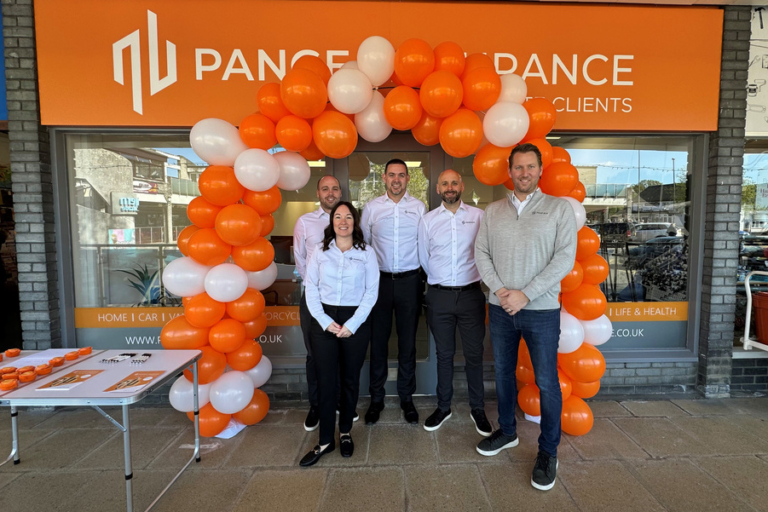Tim Rogers: the pivotal role that retail investors play in the market

In this month’s column I wanted to lift the lid on the longstanding and somewhat excoriating relationship between the retail investor and a particular category of institutional investor we know as the professional Small Cap Fund Manager!
There is a need for definition here, because when I talk about the retail investor, I refer to the private investor who use their own resources and knowledge to build a trading and investment strategy, whilst when I talk about the institutional investors, they are the professionals backed by minions mining vast pools of data and employing sophisticated analysis tools.
During my time meeting investment firms in London and New York I met some extremely clever and savvy fund managers. They were invariably backed by a trusty team of analysts and had a good instinct and ability to separate the wheat from the chaff. I quickly noticed that fund managers investing in large cap, well established and well capitalised blue-chip stock differed greatly from Small Cap Fund Managers. And here is the thing, in one area where they differed from their big cap brothers, was the willingness of the Small Cap Fund Managers to associate with and enter the orbits of the retail investors. Why?
READ MORE: Tim Rogers: How to spot a successful business and business plan
ABRDN claim on their website that buying into “Small and Mid-Cap Equities is buying tomorrow’s larger companies today”. And “that it is an unexplored universe”. That in a nutshell is the attraction of this sector to many investors. They associate small-cap stocks with growth or those with potential to evolve into the next big growth business.
Now consider that retail investors who trade with their own personal finances, are more emotionally invested in the market and can move quickly when it comes to investing in small-caps. But it is unusual for larger institutions to buy into smaller companies, as they have some arbitrary minimum threshold of market capital value that needs to be exceeded before they can invest in such a company. That’s when they look to the Small Cap Fund Managers who, like the retail investor, have no such qualms in this regard and readily invest in this market. This means the large institutions can bide their time fishing in the parts of the markets they understand and let the Small Cap Manager sort through the minnows to hopefully nurture into the bigger fish of the future.
The Small Cap Fund Manager it must be said, have entry points to the market, not readily available to the Retail investor. For example, they can enter at a company’s IPO or subsequent secondary fund raise. Companies looking to IPO are normally taken on a roadshow of the city by their broker, meaning that on the day of IPO the stock is placed and the value set with the institutions. The retail investor can only usually invest on the first day of trading and hope that there are market makers ready to trade shares. So, at this point, the fund managers have the dilemma of holding stock in a relatively obscure company and now need to find a legal way to help raise the profile/share value of the company they have newly invested in.
ABRDN claim on their website that buying into “Small and Mid-Cap Equities is buying tomorrow’s larger companies today”. And “that it is an unexplored universe”. That in a nutshell is the attraction of this sector to many investors. They associate small-cap stocks with growth or those with potential to evolve into the next big growth business.
In the first instance the fund manager can merely wait and hope that the companies can effectively deploy their investor relations team or rely on the company’s brokers - via their analysts – to raise awareness in the investor community and drive up the share value. It can’t be easy for them to just sit on their hands. One fund manager complained to me that our annual report and year end presentation was “dull and not punchy enough” and that we needed to include more market info and business planning narrative. I countered that our competitors also read the report and I was not wanting to signal to them our strategy! They were not impressed.
When a company IPOs it is naturally grateful to the institutions who showed faith and came in. So, it is easy to be cowed and to heed comments and criticisms levelled at them by the investing fund managers on how they can better present themselves. After all the fund manager not only needs to see the share price rise to boost performance of their own fund, but they need to get the stock to the attention of the larger funds circling above should they ever want to divest at a later date.
I have always held the opinion that it is the retail investor that chiefly drive the share price of many illiquid small-cap stock. It follows that a Small Cap Fund Manager would want to engage with them and can legitimately do that in various ways, for example, by regularly writing lead financial articles /books, appearing on the investor programs/webcasts or participating in private investor seminars. This only often works if they have established a track record of success, however it follows that success can build success and having an eager Retail following can only help in that.
Now as private Investor trying to turn a buck in the stock markets, we all want to believe in someone who might have the edge, and someone who knows how you can shortcut the graft and hard work and deliver one thing right on the night. Invariably this individual seems to have got it right once and now feels he will do it again. Can they also help shorten the odds to make this happen?
I was told once about the first rule of Wall Street - Nobody - and I don't care if you're Warren Buffet or Jimmy Buffet - nobody knows if a stock's going up, down or sideways, least of all stockbrokers. But we have to pretend we know.
Always ask yourself what conclusions can we draw seeing an Institution making a pitch? Well, I remember meeting one senior financial analyst who said that when he hears someone make an observation or a pronouncement, he asks himself, why are they saying that, why are they saying that now and what do they hope to gain by saying it?












